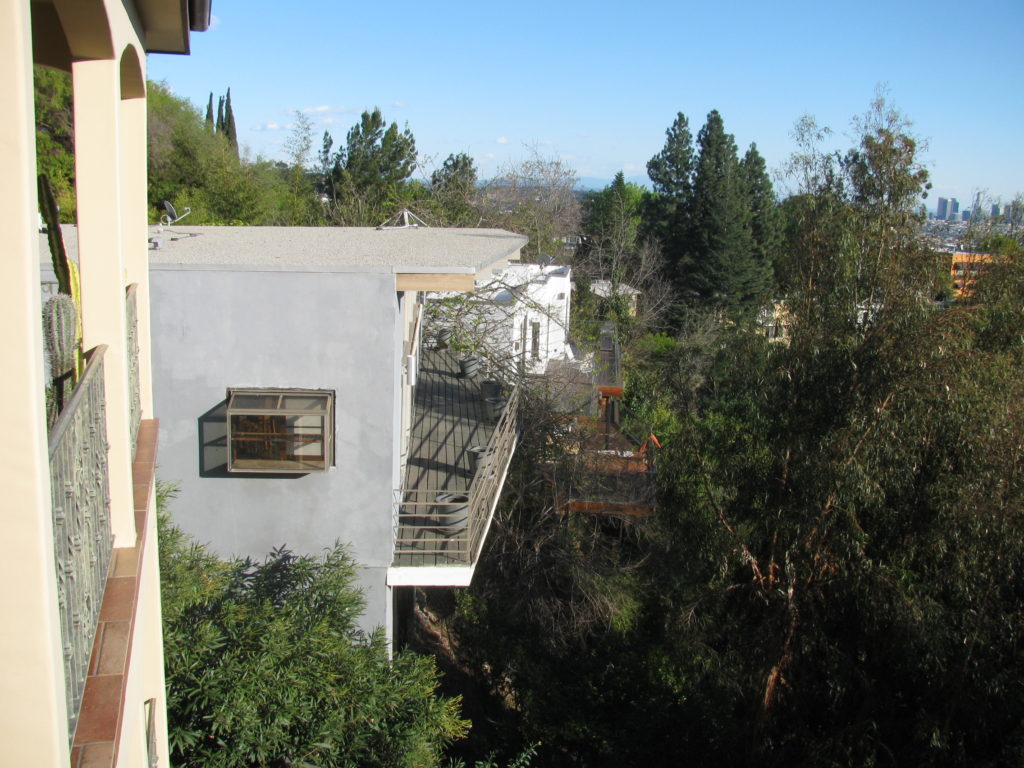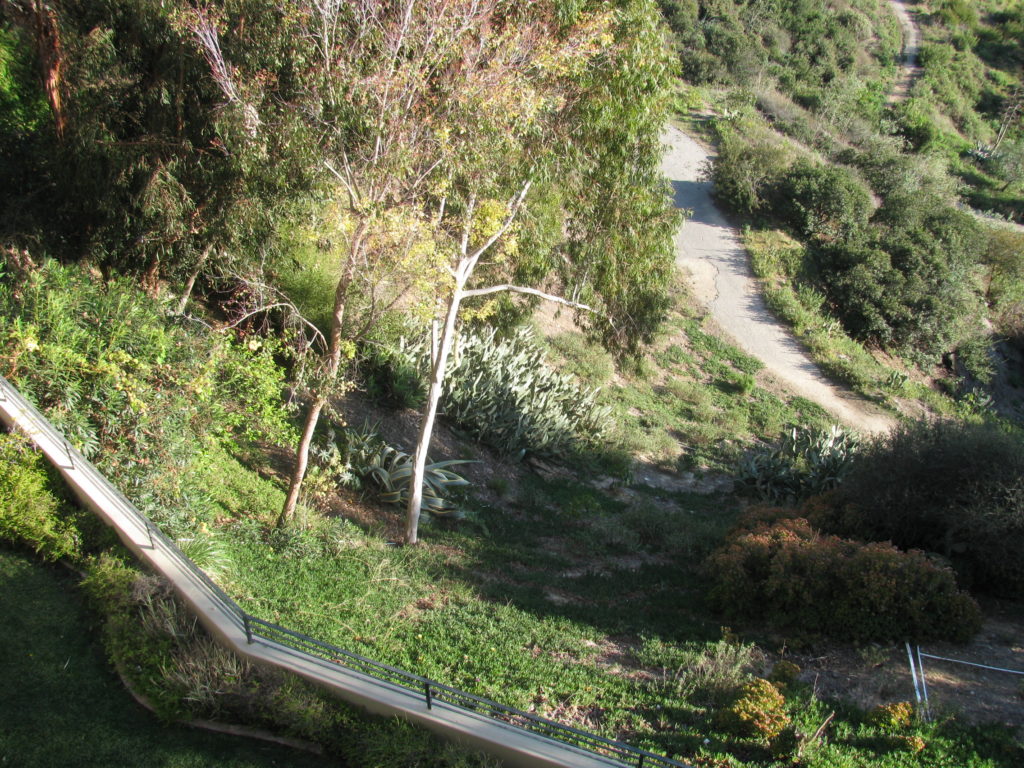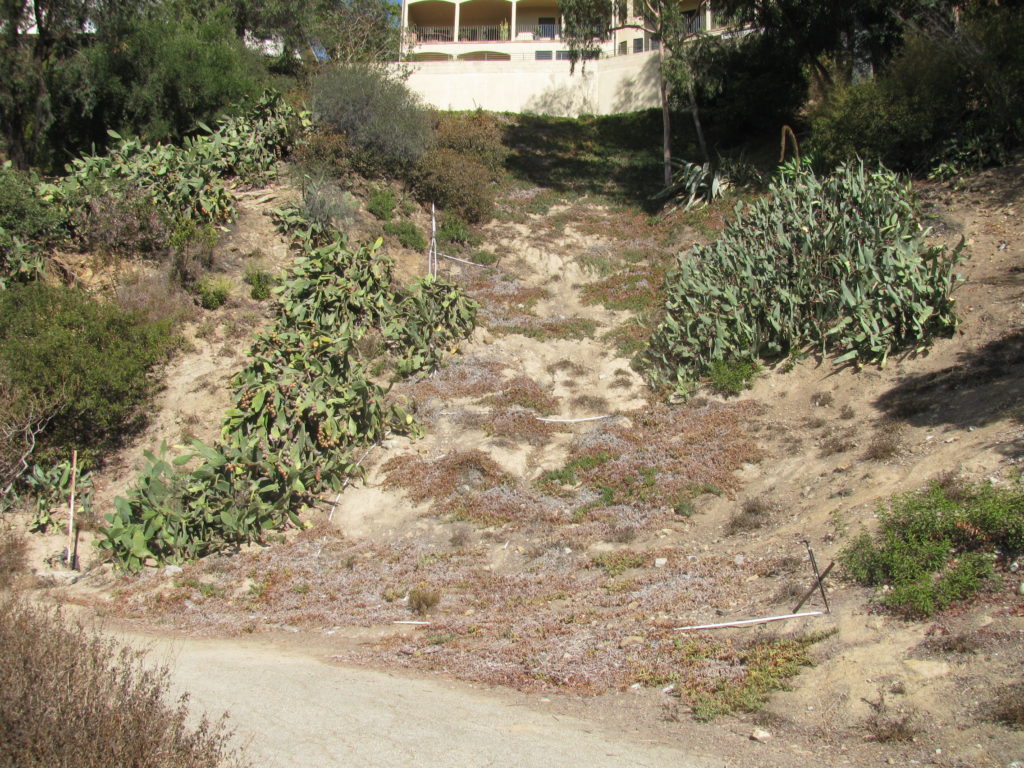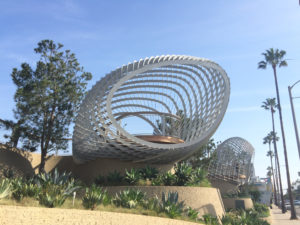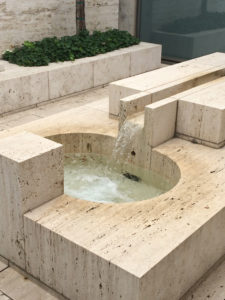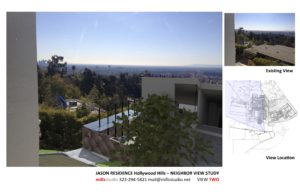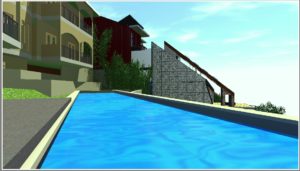A struggle against nature never appealed to me. The struggle for and with Nature thrilled me and inspired my work.
~ Frank Lloyd Wright
Landscape Design Process
The DTS Project House landscape design process is intertwined with the architectural design process. mills studio’s architectural agenda includes an integration of architecture and landscape that can only be achieved with the architectural design and landscape design as a single simultaneous process. There are specific requirements for the development of the DTS project, such as privacy from neighbors, that the architecture and landscape necessarily work together to achieve, and thus architectural design strategies are landscape design strategies and vice versa.
Landscape can show artistic intention without imposing a predetermined meaning.
~ Diana Balmori
Impacting the Landscape Design
Multiple influences affect the Landscape Design from the universal to the particular. The general includes mills studio’s architectural agenda and attitude toward the integration of architecture and landscape as well as an attitude toward landscape’s relation to the environment. Specific impacts include the Owner’s directives, particular existing attributes of the site, such as a need to create privacy from neighbors, precedents of existing landscapes, and detailed research of alternatives for particular design aspects, from alternative bamboos gravel sizes.
Site
The site’s position within a neighborhood with adjacent neighbors on three sides makes it necessary to develop a strategy for creating privacy without overly compromising views out and making the house too enclosing.
The site’s severe topography greatly influences the design of the lower hillside which must provide circulation from the house to the lower street. The severe slope also provides the opportunity for the lower hillside to be designed both as a spatial landscape experience at ground level and as an elevation looked down upon from the house.
The site’s most important existing plant feature is the three areas of hillside cactus. Incorporating the existing cactus areas was both a directive from the Owner and an opportunity to clearly express the intended relationship of landscape to the environment.
Inspiration
Just as precedents inform architectural design, they should also inform and provide inspiration for landscape design strategies and specific implementations. Existing landscapes were considered, visited, and evaluated for how they did or did not integrate with the architecture, for alternative approaches to similar site conditions, and for use of specific plantings and hardscape materials. Referencing and visiting existing landscapes was a valuable way to convey design intent and inspire the client.
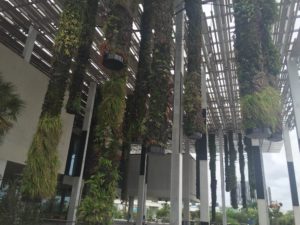
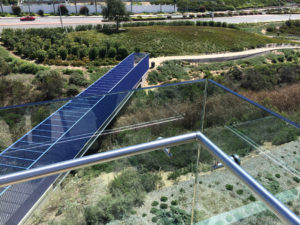
Research
Specific aspects of the landscape and hardscape, such as bamboo, water features, and cactus, were researched in detail and many varied alternatives experienced directly. Alternatives were evaluated for how their design and material attributes might contribute to and reinforce the DTS Project House design intent. Alternatives were also looked at for how design intent was technically achieved.
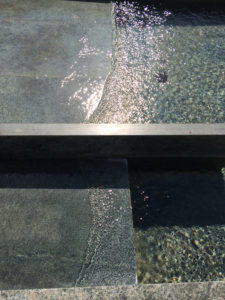
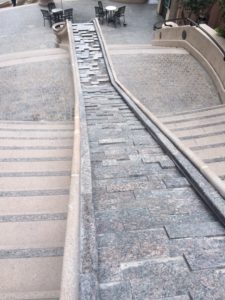
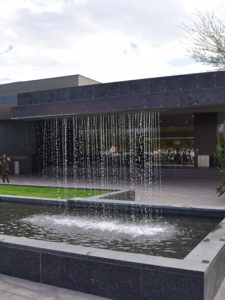
Schematic Design
Alternative strategies for solving the specific landscape concerns, such as privacy and circulation, were modeled and evaluated for how each strategy fit the actual site conditions, addressed the concerns of the architectural agenda, reinforced the architectural design intent, and solved the specific landscape concerns. Alternatives for specific hardscape and landscape features, materials, and species were evaluated again for how they reinforce the architectural agenda, landscape design intent, and for their inherent qualities apart from their contribution to the whole.
Particular Landscape Design Issues
In addition to accounting for mills studio’s architectural agenda, the existing site context, the Owner’s directives, and the architectural development, the Landscape must address very particular concerns and functions.
1. Privacy
1. Privacy from Creston Drive at public street level.
2. Privacy from neighbor across Creston Drive looking down on site.
3. Privacy from neighbor to west – Existing entry courtyard and upper and lower rear decks.
4. Privacy from neighbor to east – Existing residence with development of rear yard pool area and from upper balconies on multiple levels.
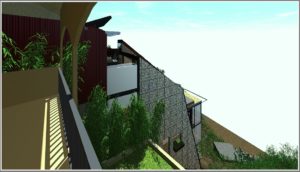
5. Privacy from neighbors to east and west wrapping along the lower street.2. Site Circulation
1. Entry to site from Creston Drive by vehicle and walking.
2. Circulation from motor court to “back door”.
3. Circulation from motor court down to pantry entrance.
4. Circulation from street down to “front” door.
5. Circulation of gardeners and pool maintenance personnel.
6. Circulation from house ground level to Hargrave Drive / Trails3. Trash / Recycling
1. Storage of trash and recycling containers
2. Circulation of trash and recycling containers to Creston Drive4. Utilities and Access
1. Provide locations for public utilities
2. Provide access for utility personnel to access various meters5. Creston Drive Public Garden
1. Public introduction to property
2. Transition along street from upper driveway to lower driveway6. Entry
1. Pedestrian entry to site from Creston Drive
2. Path down to front down
3. Sound of water
4. Seating area before entering house proper7. Motor Court
1. 2-car Garage access from Creston Drive
2. Incorporate vehicle turntable
3. Provide additional off-street guest parking
4. Use as “event” space with ability for sun protection8. Susan’s Private Garden
1. Intimate garden only accessible from Susan’s Office
2. Floating above motor court with walking underneath…architects should design gardens to be used, as much as the houses they build.
~ Luis Barragan9. Pool
1. Swimming as exercise
2. Reflecting pool / water feature10. In the Sky
1. Three main living levels above ground
2. Little direct contact with landscaping emanating from ground11. Herb Garden
1. Herb Garden easily accessible from upper level kitchen and pantry12. Outdoor Barbeque Cooking
1. Outdoor Barbeque Cooking area easily accessible from upper level Kitchen and Pantry13. Interior
1. Provide direct contact with “landscape” elements on upper levels14. Eastern Public Terrace
1. Outdoor fire feature
2. “Built-in” Seating15. Western Public Terrace
1. Outdoor fire feature
2. Outdoor television viewing16. Eastern Ground Level Garden
1. Private ground level garden outside bathing area17. Western Ground Level Garden
1. Private ground level garden outside bathing areaNature is not a place to visit, it is home.
~ Gary Snyder18. Path from House down to Hargrave Drive
1. Circulation from ground level of house to Hargrave Drive / hiking trails
2. Provide access to hillside destinations and outdoor art19. Destinations and Outdoor Art
1. Intimate accessory building destinations on lower hillside
2. A “writers cottage”
3. Contemplative seating
4. Integration of outdoor art20. Existing Cactus
1. Incorporate and highlight existing cactus areas
A garden is organized nature….
~ Roberto Burle Marx
